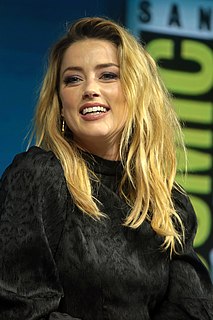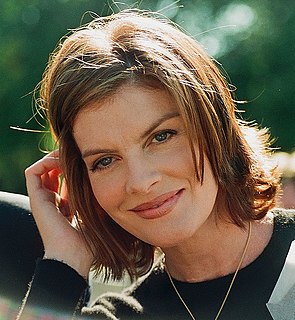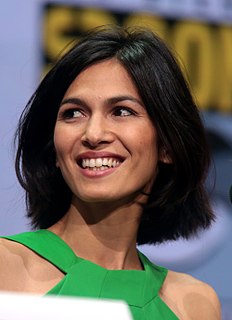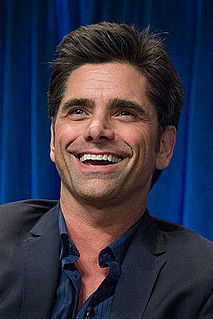A Quote by Julie Taymor
I've had male executives say that my lead character was unlikable because she slept with a lot of guys.
Related Quotes
I get a stack of scripts, like, once a month, and most of the time, you find these placeholder girls that are there to provide a bounce for the male character. So we know he's funny because she's serious and she's mad at him. We know he's strong because she needs saving. So really, her job is to validate this personality trait of our hero or male.
During the years I was on the board of directors of the National Organization for Women in New York City, the most resistant audiences I ever faced in the process of doing corporate workshops on equality in the workplace were not male executives - they were the wives of male executives. As long as her income came from her husband, she was not feeling generous when affirmative action let another woman have a head start vying for her husband's (her) income.
She had not wanted him to but had let him have his way because ever since she was a child she had generally yielded before anyone with strong willpower, especially if it was a man, not because she was naturally submissive, but because strong male willpower gave her a feeling of safety and trust, together with acceptance and a desire to give in.
You don't get roles like leading character in 'Christine' very often because people don't really like women on film to be unlikable. I think Christine is lovable, but I don't think she's likable. I think there's a fundamental difference. For me, those are the richest ones. Men have had a career of doing those kind of things.
What's amazing about this show [Westworld], and what it gives us permission to do, is to be kind of superhuman. Because at the end of the day, [Dolores] she's not a male and she's not a female. She's evolved past that. She's a very highly advanced being, and so I think it's really going to knock down a lot of stereotypes and a lot of gender roles and be a neutral party.
I did a film called 'Worlds Apart' about a Jehovah's Witness. I was the love interest - the male lead - but the story was about the female lead, a young girl who is a part of this cult, and she wants to break out. She meets a guy who has to help her. She has to find out who she is. It's more like a coming of age story.






































